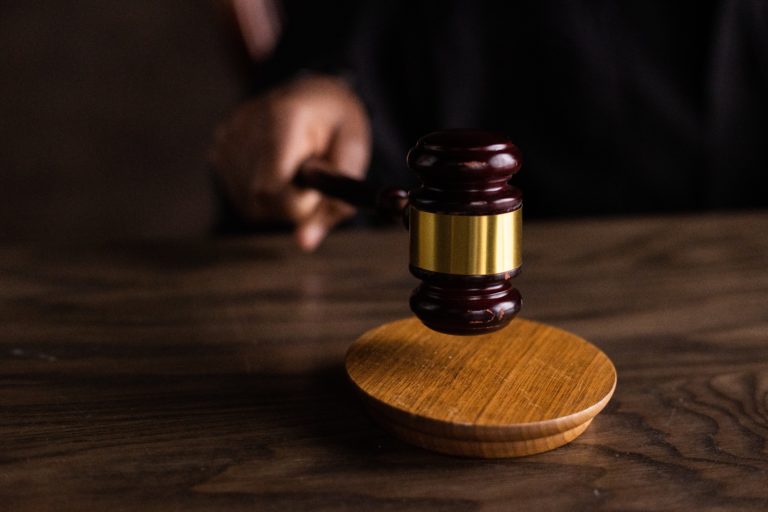Police Chiefs Support Sanctuary Cities Nationwide
A complicated legal battle is about to take place between the Trump Administration and the nation’s “sanctuary” cities, cities that are presumably not in compliance with federal immigration laws. A great deal of the confusion stems from the fact that the term “sanctuary city” was created by the media, so there is no legal doctrine of sanctuary and no legal definition of precisely what constitutes a sanctuary city. Because the term means different things to different people, the legal dispute may be difficult for some to follow and understand.
Some self-proclaimed sanctuary cities have established policies that prevent their law enforcement officers from asking about the immigration status of residents, while other jurisdictions refuse to hold undocumented immigrants in jail for federal authorities beyond their scheduled release dates. Some cities have established legal defense funds to help immigrants who may be targeted in the raids now being ordered and conducted by the Trump Administration.
Attorney General Jeff Sessions has said that he will work to withhold federal funds from cities and counties that consider themselves sanctuaries. The Attorney General is threatening sanctuary jurisdictions with the loss of as much as $4.1 billion in federal resources.
However, “The rhetoric doesn’t match the legal authority,” according to Peter L. Markowitz, the director of the Immigration Justice Clinic at the Benjamin N. Cardozo School of Law in New York. Markowitz told the New York Times, “In fact, the president has very limited power to exercise any kind of significant defunding.”
What Are the Nation’s Mayors Saying About Sanctuary Cities?
With an estimated eleven million undocumented immigrants living in the United States – and perhaps half or more of that eleven million living in sanctuary cities – talk of a crackdown on undocumented immigrants has created tension across the nation. “We’re going to defend all of our people regardless of where they come from, regardless of their immigration status,” says New York City Mayor Bill de Blasio.
Chicago Mayor Rahm Emanuel declared: “I want to be clear: We’re going to stay a sanctuary city.” San Francisco Mayor Ed Lee added, “We will not give in to threats, or political grandstanding,” while Boston Mayor Martin J. Walsh told reporters, “To anyone who feels threatened today, or vulnerable, you are safe in Boston. We will do everything lawful in our power to protect you. If necessary, we will use City Hall itself to shelter and protect anyone who’s targeted unjustly.”
A group called the Immigrant Legal Resource Center says that at least 39 cities and 364 counties across the United States identify themselves as sanctuary jurisdictions, but those cities and counties vary in the ways that they enforce – or fail to enforce – federal immigration statutes. For many U.S. police departments, calls for a “crackdown” are particularly disturbing.
Police chiefs and commissioners believe that a crackdown will actually mean higher crime rates and more dangerous neighborhoods. Most undocumented immigrants will not report crimes – even when they are the victims – if they fear local police will hand them over to immigration authorities.
Why Do Police Chiefs Support Sanctuary Cities?
In Tucson recently, an undocumented immigrant stopped and struggled with a man who was trying to steal a car that had children inside. The immigrant held the suspect until police could arrive, and the suspect was charged with auto theft, burglary, and kidnapping.
In cities across the U.S., those who are undocumented frequently help police officers with reports, descriptions, and other important information the police need – because, in sanctuary cities, those immigrants feel secure.
Police officials also understand that an unreported violent crime today means more crime and more violence in the future. Police departments in cities like Los Angeles have adopted sanctuary-style enforcement policies – and have invested substantial time, resources, and manpower – toward building trust and a spirit of cooperation with immigrant communities. When the people in a community trust the local police, that community is safer for everyone.
Some people have the mistaken idea that immigrants living in sanctuary cities get a “free pass” to commit crimes. No idea could be more mistaken. All law enforcement agencies and police officers are dedicated to the pursuit and arrest of violent and dangerous criminals without regard to a suspect’s immigration status.
In fact, immigrant communities are happy to help the police capture violent criminals because those communities are often the communities most at risk from such persons. Without the information that immigrant communities provide, investigating crime becomes difficult in many cities, and crime goes up.
The cities of Seattle and San Francisco will argue in federal court that the federal government’s coercion of sanctuary cities violates the Tenth Amendment to the United States Constitution by forcing local governments to enforce federal immigration statutes. Seattle and San Francisco contend that the Department of Justice’s threats to withhold federal funding from sanctuary cities constitute a violation of the Tenth Amendment.
How Can Immigrants and Their Families Obtain Sound Advice?
Several cases will soon be heard in federal courts regarding sanctuary cities, and as rulings are rendered and appealed, the legal situation may change – more than once – over the next few months. Immigration law is always complicated, and in 2017, with a new president setting new policies, the situation is even more complicated and confusing.
Until definitive rulings that resolve the legal questions are handed down by the United States Supreme Court, immigrants, nonimmigrant visa holders, employers of immigrants, and the families of immigrants may need the legal advice and guidance of an experienced Columbus immigration attorney.
Immigration and Customs Enforcement (ICE) officials have not announced how many arrests they have made this year, but they did release a statement on February 13th announcing “a series of targeted enforcement actions” around the country. Late in March, CNN reported that Immigration and Customs Enforcement has, in fact, stepped up its enforcement operations in several sanctuary cities.
Now more than ever, if you are a foreign national and you are without documentation, or if you are seeking a visa, a change in your immigration status, protection from deportation, or a green card, you must have sound legal advice and experienced representation. A Columbus immigration attorney can help with visa petitions, legal documentation, change-of-status applications, interviews and hearings, and all other aspects of the immigration process.
We Are Here to Help
There may be other nuances and details of your immigration case which should not be overlooked, therefore it is advisable to work with an experience Columbus immigration law firm, like Shihab Burke, LLC, Attorneys At Law.
Contact us today!






